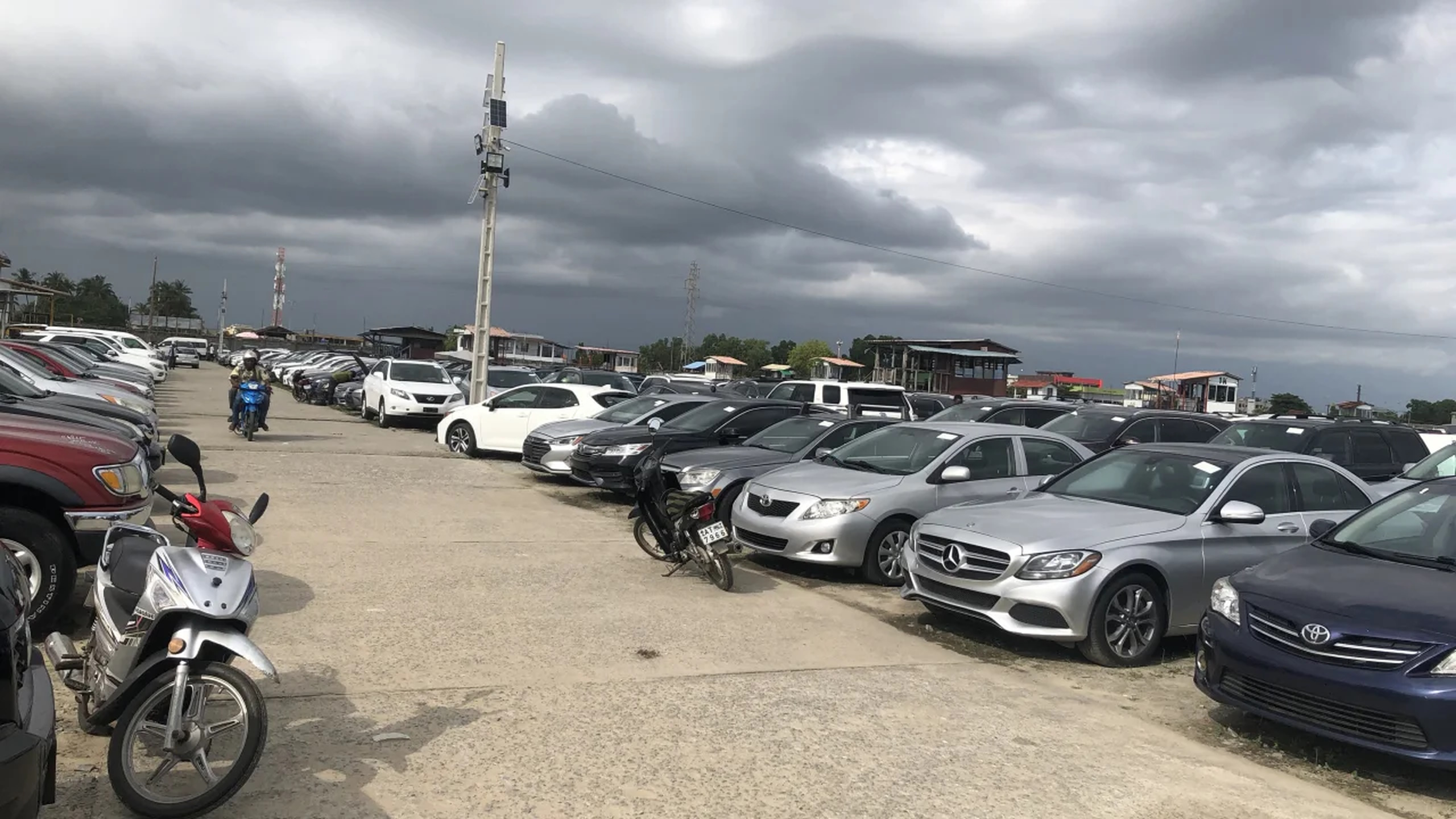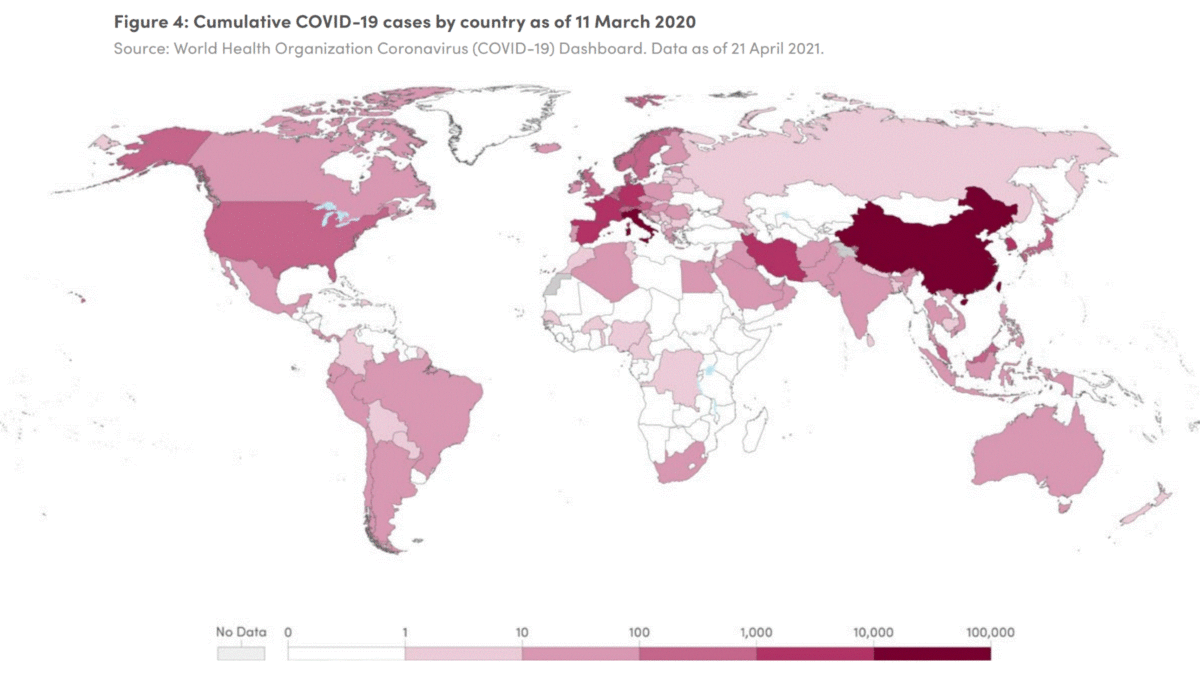As the West surges toward electric cars, here’s where the unwanted gas guzzlers go – “You have a very young population that’s getting richer and richer by the day. The first thing they want to do, as they can afford things, is some mobility.”

By Nimi Princewill and Ella Nilsen
21 May 2023
Cotonou, Benin (CNN) – Standing on the stony ground in the bustling Fifa Park car lot, Rokeeb Yaya is haggling over the price of a dark red car. It is one of a couple hundred vehicles, parked in long lines stretching out across the vast lot – some shiny and new-looking, others dented and dusty.
The car Yaya has his eye on, a 2008 US-built Ford Escape, is on sale for around $4,000. It’s relatively affordable – US cars are cheaper than most other brands in the lot – and he wants to upgrade from his motorbike to a car. He is not interested in the history of the vehicle, he said, only that he can afford it.
But how this Ford ended up here – in one of the biggest car lots in the port city of Cotonou – helps tell a bigger story about how many of the West’s gas-guzzling cars are starting second lives in West Africa.
The 14-year old Ford arrived in Benin from the United States last year, after being sold at an auto auction.
Car records reviewed by CNN show it had three previous owners in Virginia and Maryland, and has logged over 252,000 miles on the road. It had one previous recall for its power steering, but unlike some of the other cars on the lot, it arrived in a relatively sound condition – it hadn’t been in any reported accidents.
This aging SUV is just one of millions of used cars that arrive every year in West Africa from wealthy countries such as Japan, South Korea, European countries and, increasingly, the US. Many of these end up in Benin, one of Africa’s top importers of used vehicles.
The stream of used cars heading to West African ports is only expected to increase with the West’s shift to electric vehicles. As wealthy countries set aggressive goals to move consumers towards electric vehicles to cut planet-warming pollution, gas-powered cars won’t necessarily go away.
Instead, many will be shipped thousands of miles away to developing countries like Benin, where populations are growing, along with demand for used cars.
Experts say the effect will be to divert climate and environmental problems to countries that are the most vulnerable to the climate crisis, undermining their own attempts to cut planet-warming pollution.

Exploding demand
The global market for used light-duty vehicles grew nearly 20% from 2015 to 2019, when more than 4.8 million were exported. There was a slight dip in exports in 2020 when the Covid pandemic started, but numbers are now “growing quite rapidly,” United Nations Environment Programme official Rob de Jong told CNN.
The US exports about 18% of the world’s used vehicles, according to UNEP data. These travel all over the globe, including to the Middle East and Central America, but many go to Nigeria, Benin and Ghana. […]
There is a tremendous appetite for these used vehicles. “You have a very young population that’s getting richer and richer by the day,” said Etop Ipke, the CEO of Autochek Africa, an online marketplace for cars. “The first thing they want to do, as they can afford things, is some mobility,” he said.
But, unlike in the US, few prospective buyers have access to credit, so new cars are often out of reach.
“That is fundamentally the reason why we’re not able to improve the quality” of cars sold, Ipke said. “It’s not like people want to drive used cars; it’s an affordability issue.”
Experts say demand for used cars could explode further as the take up of electric cars in the West increases the supply of used cars to African countries. Nearly one in five vehicles sold globally this year will be electric, according to the International Energy Agency, compared to less than 5% in 2020. China, Europe and the US are leading the EV market, the agency said. […]
rom UNEP’s perspective, not all gas-powered cars are concerning – it’s the older ones, which tend to pollute more and be less safe, De Jong said. There’s evidence that the increasing demand in Africa for vehicles is actually resulting in more old and salvaged cars being shipped to the continent recently than there were 20 years ago.
“What we see at the moment is a wide variety of used vehicles being exported from the global north to the global south,” de Jong said. “Not only is the number increasing, but the quality is decreasing.” […]
Millions of cars shipped to Africa and Asia from the US, Europe and Japan are “polluting or unsafe,” according to UNEP. “Often with faulty or missing components, they belch out toxic fumes, increasing air pollution and hindering efforts to fight climate change.” [more]
As the West surges toward electric cars, here’s where the unwanted gas guzzlers go


